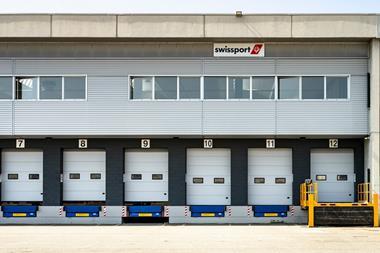Schiphol Airport's key cargo stakeholders have agreed a proposed "local rule" that would ease the slot constraints on freighter flights at Europe's third largest freight hub.
The solution for the Amsterdam gateway now goes to the Dutch Ministry of Infrastructure and Water Management, with the request to consider the proposal as soon as possible and to test it legally.
According to the latest Air Cargo Netherlands (ACN) newsletter, the Coordination Committee Netherlands – which represents passenger and cargo carriers at Europe's third largest freight hub – voted for a proposal from Dutch carrier KLM which was carried by "a large majority".
Dutch shippers association Evofenedex, TLN and ACN are "positive" about the adopted proposal and see this as "a workable solution for cargo flights within the current agreements on Schiphol".
The local rule would allow the independent slot coordinator to take charge of allocation of slots to carriers and so mitigate the effect of the recent shortage that has led to some cargo operators withdrawing or curtailing their services at Schiphol.
Under the 2008 Alders Agreement, the number of commercial air transport movements was capped at 500,000 up to 2020. With Schiphol nearing that limit, there were almost no free slots left.
Cargo carriers have suffered disproportionately because, under existing IATA rules, any airline that uses more than 80% of its allocated slots acquires a historic right to them and will automatically be allowed to operate its flights next season. But those that use fewer than 80% of their allocated slots automatically lose them.
All-cargo carriers, with their less regular schedules, often find it difficult to comply with the 80% rule. However, a local rule would override this and allow slots to be re-allocated back to cargo airlines.
The Schiphol freighter exodus saw Russia's civil aviation authority threaten to ban KLM passenger flights in its airspace unless Russian owned AirBridgeCargo was allowed to retain its full slot provision at the Amsterdam hub, resulting in a code-share agreement between KLM and the all-cargo carrier.
A Schiphol airport spokesman said: “We are pleased that the airlines, through the Coordination Committee of the Netherlands, which represents carriers flying to and from Amsterdam, have resolved this by themselves and that the majority of them are in favor of the local rule.
“Schiphol recognizes the value of air cargo as part of its Mainport project, and therefore its value to the Dutch economy. It is Schiphol’s objective to aim for sustainable growth at the airport after 2020 and airfreight is an important part of that.”
ACN, in its Dutch-language newsletter, said that during the meeting Schiphol and KLM both presented separate proposals to end the deadlock on cargo flights. The meeting voted only on KLM's proposal, because this had been "better elaborated on details".
According to a translation of the ACN newsletter: "In the KLM proposal, the preservation of historical rights and final optimisation are central. As a result, there is less risk that the number of cargo flights at Schiphol again decreases. When issuing non-flown slots (eg due to bad weather) priority is given to cargo flights. This makes it possible to make optimum use of the ceiling of 500,000 flight movements at Schiphol. The last point will be worked out even further by the parties over the next six weeks."
The newsletter added: "Evofenedex, TLN and ACN are satisfied with the achieved result and praise the efforts of the parties to come to a solution. According to the three parties, this proposal, under the Alders Agreement, underlines the importance of cargo flights at Schiphol. The Schiphol cargo hub is essential for export opportunities for entrepreneurs, the business climate for foreign companies and employment at and around Schiphol."










